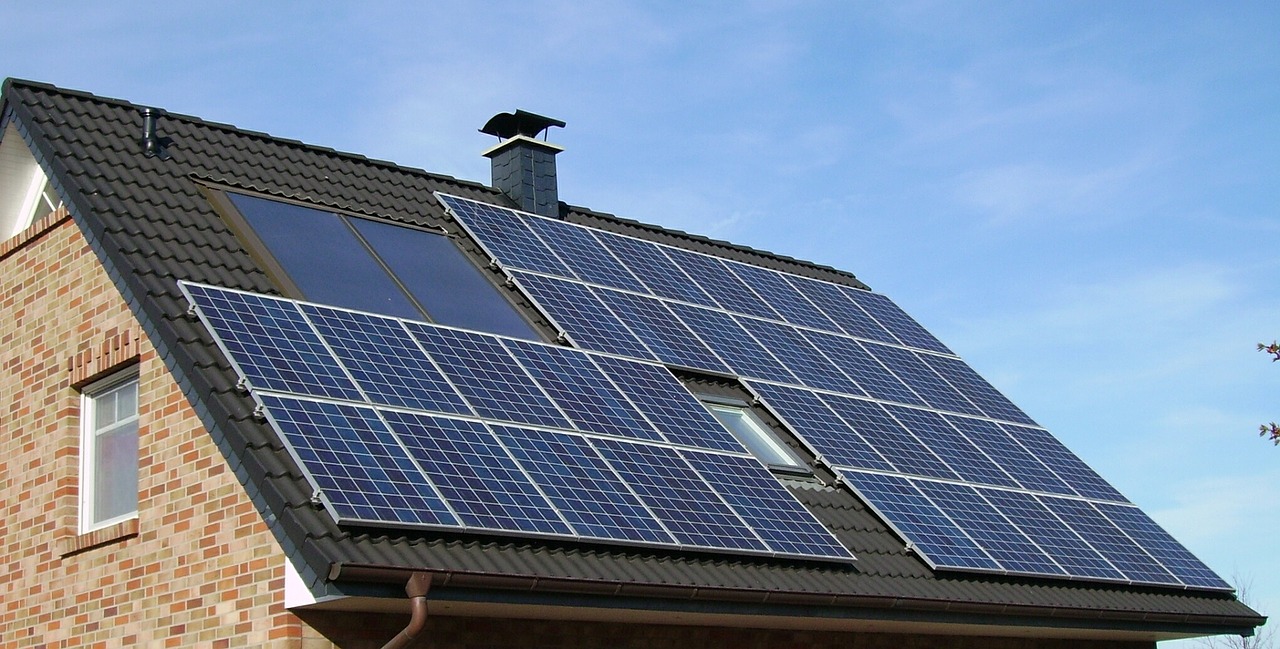Solar panels stand out among other sources of alternative energy as a clean and effective way to supply electricity to households. While many other sources of alternative energy aren’t accessible for homeowners, solar is easy to come by. But before switching to solar power, it’s best to weigh up all the pros and cons. This will help you make the best choice for your household. It’s a big commitment to install solar panels at your property, so you’ll want to make sure you do it right.
Benefits of Going Solar for Residential Power
Homeowners differ in why they choose to go solar. For some, it’s simply a desire to reduce their carbon footprint, but there’s more to going solar than pure philanthropy. Installing solar panels at your home could save a lot of money long-term.
On average, American homeowners who get solar panels installed break even after about 7.5 years. So, after approximately 7.5 years homeowners will save the entire sum spent on the initial solar panel installation. After this period, all the money a homeowner saves by using solar panels is a true saving.
When buying a good brand of solar panels, a residential solar system can last anywhere between 25-30 years. This means that most homeowners can expect their solar system to “pay for itself” in savings about threefold.
However, many homeowners are concerned that they won’t stay at their current residence long enough to warrant such investment. If you want to install solar panels on you home, but you’re not planning to stay another 25 years, there’s good news for you. Solar panels can increase the value of your property and can also help you sell your home faster.
Unfortunately, installing a solar power system isn’t as simple as buying panels and placing them on your roof. There are some things you’ll need to know about getting solar panels before you buy them.
What are the Requirements to Get Solar Panels?
Solar panels require the right conditions to work properly. If your property gets too much shade, installing solar panels won’t help much. This means that solar panel installation at your home could see you chopping down trees and changing your initial plans to ensure the solar power system produces enough electricity.
Solar Panel Roofing Requirements
Thankfully, solar panels can easily be installed on most common roof types. As far as roofing materials are concerned, asphalt shingles are among the most popular choice for homeowners. Solar panels can quite easily be installed on asphalt shingles, making them accessible for the majority of homeowners.
Materials that are generally suitable for solar panel installations include:
- Asphalt shingles
- Metal roofing
- Various flat roofing materials
There are some materials, like slate and wood that aren’t suitable for solar panel installation, however.
But before considering your roofing material, it’s good to have a look at the current state of your roof. On average, asphalt shingles last about 20 years or more. If your roofing is older than 5 years, chances are it won’t last as long as your solar energy system. In such cases, you might have to add new roofing onto your list of expenses for installing solar panels on your home.
Another common roofing issue is the pitch of your roof. Solar panels require a pitch of about 30 degrees to work effectively. This can pose a problem is your home has a flat roof. To solve to pitching problem, solar panels can be installed onto mounting brackets that tilt them up at the optimal angle.
One of the last things to consider is the size of your roof and the amount of sun it receives. There’s no use installing solar panels in areas of your roof that don’t get a lot of sun throughout the day. Areas of your roof facing south will usually receive the most sun.
Whichever way it goes, chances are good your whole roof area won’t be suitable for laying solar panels, so it helps if you have a large area to begin with.
Must Solar Panels Always Be on a Roof?
It can be disappointing to learn that your roof isn’t suitable to install solar panels on. Still, this doesn’t necessarily mean you can’t get a solar energy system at all. If you have a large yard that receives a lot of sun throughout the day, installing a ground mount solar system might be an option for you.
Are Solar Energy Systems Connected to the Grid?
Ideally your solar energy system should be connected to the grid, yes. Staying connected to the grid will help if your solar panels aren’t generating enough electricity to keep up with your energy consumption. In times when there isn’t a lot of sun, such as rainy days and at night, being connected to the grid will also help you keep the lights on.
Another benefit of connecting your solar power to the grid is net metering. With net metering, you’ll receive credits from your power company whenever your system is generating more electricity than you consume. During times when your system isn’t generating enough power, these credits can go towards paying your electricity bill.
How Much Electricity Can Residential Solar Panels Generate?
Like most homeowners, you’re probably interested to learn how much of your electrical needs a solar power system can cover. Unfortunately, there isn’t a simple answer to this question.
The output of your system will depend on a few things such as:
- How much space you available to install solar panels.
- Your average household energy consumption.
- How much you’re willing to spend on a solar energy system.
- The weather conditions at any particular moment.
To begin with, you can monitor your power usage closely to get an idea of your energy consumption. This is the best way to go about getting solar power at your residence, as you can try to plan your system based on your power usage. Even if you’re unable to get a system that covers 100% of your energy needs, knowing your average usage will help you get the best idea of what your system will do for you.
In some cases, it can help to reduce your power usage, as your system might fall just a bit short of generating enough electricity to fulfill all your current energy requirements.
When calculating how much power a system will ultimately produce, it’s best to give yourself about a 25% buffer. Even if a system could theoretically produce enough electricity for your household, its true capacity will vary depending on the weather, season and time of day.
With solar power, it’s better to overestimate rather than underestimate. If your home is connected to the grid, the extra power from your solar panels could earn you enough credits so you don’t have to pay for electricity even when your system isn’t generating enough power to meet your energy usage requirements.
Installing a Solar Panels on Your Home: What You Should Know
When push comes to shove and you’re ready to install your solar energy system, you’ll need to do it the right way. This will involve some paperwork (like energy audits and paperwork for energy rebates). In many states, you’ll also require permits. Finding a reliable electrician to help, as your electrician might be able to advise you
with regards to what permits you’ll need.
Additionally, working with a qualified, licensed electrician on your solar panel installation will ensure that all the necessary wiring is connected in a safe way that meets the safety standards and laws.
Choosing an electrician for your home solar panel installation shouldn’t be something you base purely on price. Although you’re likely to incur many expenses to get solar panels, trying to save on electrical installation can be counter-productive. After the hefty investment of buying quality solar panels, you don’t want to risk damage to your solar panels because of poor installation.
It’s important to ask your electrical installer about previous experience on similar jobs. Also ask contractors if they have the necessary licensing to operate as a contractor or electrician in Florida. If a contractor claims to have the required licensing, don’t relent from asking them to prove it. Only a qualified electrician can sign off on the installation work, so it’s important to ensure you’re getting what you pay for.




